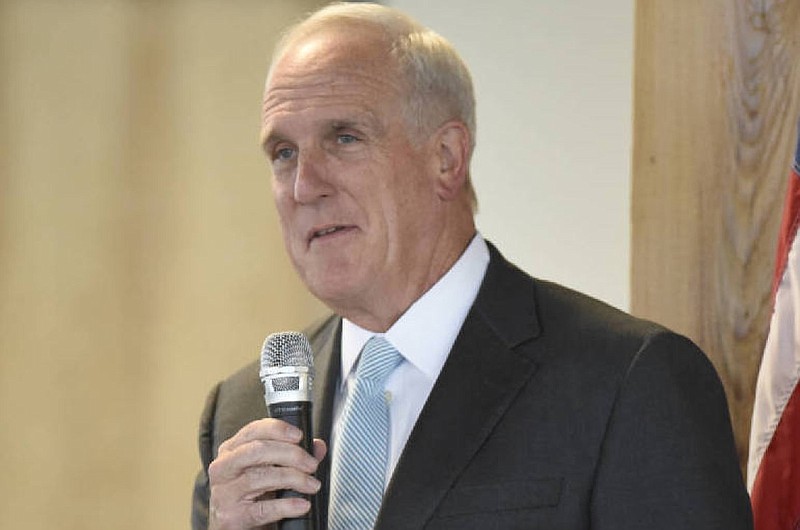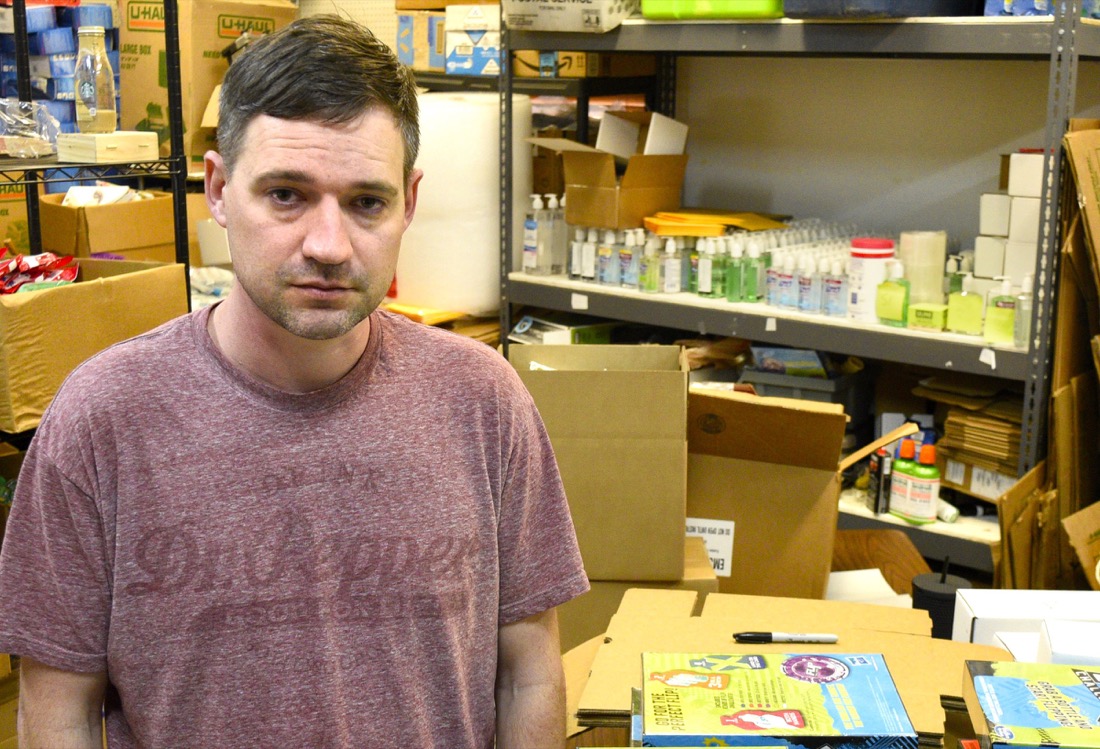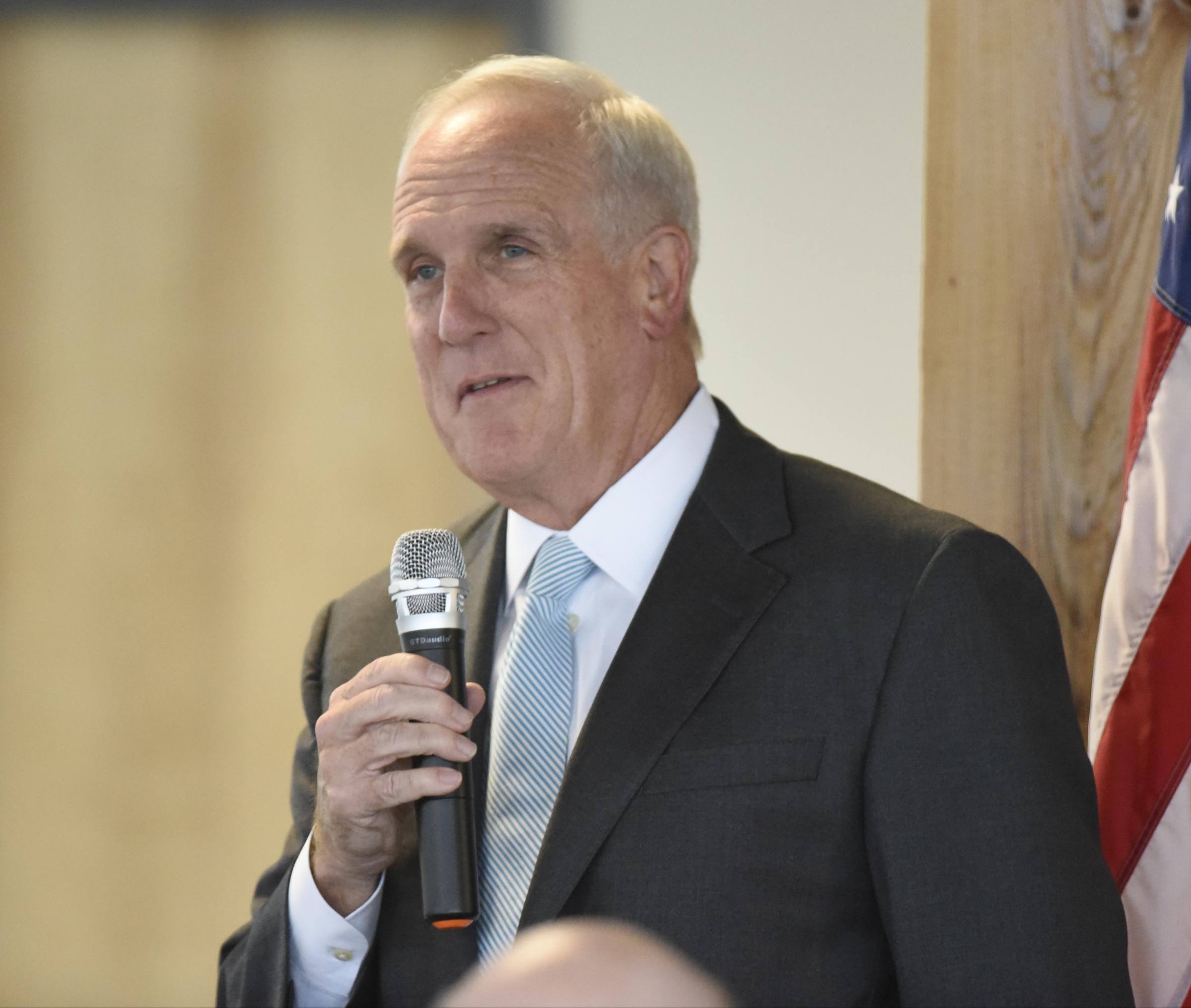Tennessee Attorney General Herbert Slatery says he has ordered two Hixson brothers, Matt and Noah Colvin, to stop buying and selling medical goods and products due to potential price-gouging activities amid the coronavirus pandemic.
Slatery, who is working with Kentucky Attorney General Daniel Cameron, said that in addition to issuing a cease-and-desist order, he has launched an investigation into the brothers' activities after news accounts that the Colvins built up a huge stash of hand sanitizer, antibacterial wipes and face masks for resale and hoped to profit from consumer-panic buying.
"We will not tolerate price gouging in this time of exceptional need, and we will take aggressive action to stop it," Slatery said in a news release. "During this pandemic, we ask that you report suspicious activity to the Division of Consumer Affairs and refrain from threatening or hostile communication with individuals or businesses you may suspect are price gouging."
That was apparently a reference to a Chattanooga Times Free Press article Saturday in which Matt Colvin said he had received death threats after he appeared in a New York Times article about purchasers seeking to profit amid the coronavirus outbreak.
Slatery said his office "will review complaints closely and we are prepared to act to protect Tennesseans."
Tennessee Gov. Bill Lee's emergency declaration, invoked Thursday in order to combat the spread of the COVID-19 in the state, also triggered a state anti-price gouging law. It prohibits vendors from charging too much during a crisis tied to a state of emergency.
Matt Colvin, 36, told The New York Times about the massive stash of hand sanitizer, antibacterial wipes and face masks he picked up in bulk over the past couple of weeks to resell for a profit on his Amazon store.
How to file a complaint
- Under Tennessee law, the attorney general's office can stop price gouging as well as seek refunds for consumers. Courts also may impose civil penalties against price gougers for every violation. The law applies to all levels of the supply chain from the manufacturer to the distributor to the retailer. - To file a complaint, go to: https://www.tn.gov/attorneygeneral/working-for-tennessee/consumer/file-a-complaint.html. - Report as many details as possible such as the name and location of the merchant, the date and time of your purchase, the method of payment, the price of the item in days before the sudden price increase, and the price you paid. - Always keep your receipts. Include pictures of the displayed price if possible.
Colvin told the Times Free Press Saturday that the New York Times story prompted death threats against him and that he was looking for a public health agency or local hospital that might be willing to take 17,000 bottles of hand sanitizer and an unknown number of medical masks and antibacterial wipes off his hands.
"I've had a dozen serious offers to buy it," he said. "I just want to get it to someone who can get it to someone who can use it."
Evidently guided by news accounts, Slatery said he has reason to believe the brothers bought the items at stores in both Tennessee and Kentucky.
Kentucky Attorney General Cameron said in a statement that "this is a time where we have to focus on helping our neighbors, not profiting from them. We're not going to tolerate selfish actions that put the health of Kentuckians at risk, and I'm grateful for Tennessee Attorney General Herbert Slatery's partnership in bringing an end to this harmful scheme."
Tennessee has acted in similar cases in the past. For example, in 2009, then-Tennessee Attorney General Bob Cooper announced a gas price-gouging settlement entered into by Knoxville-based Pilot Corp, owned at the time by the family of then-GOP gubernatorial candidate and later two-term Republican govenor Bill Haslam. It stemmed from alleged overcharges in the wake of Hurricane Ike in 2008.
Contact Andy Sher at asher@timesfreepress.com or 615-255-0550. Follow on Twitter @AndySher1.
Contact Mary Fortune at mfortune@timesfreepresss.com or 423-757-6653. Follow on Twitter at @maryfortune.


